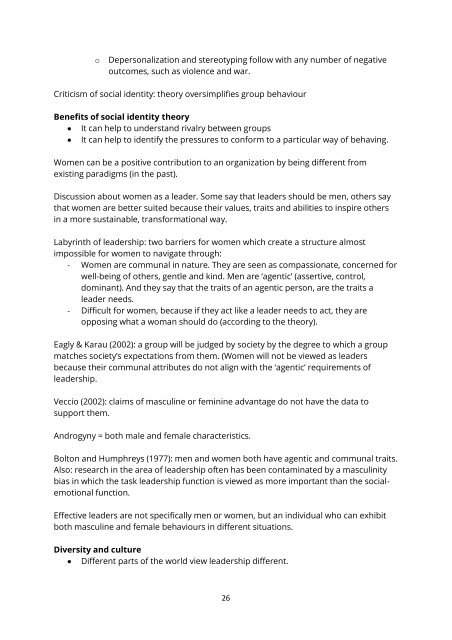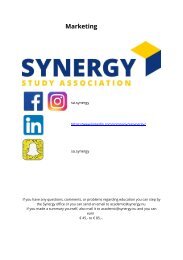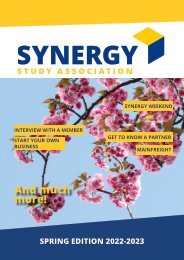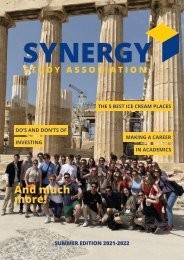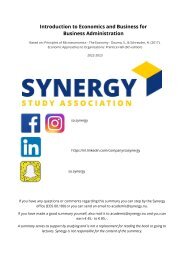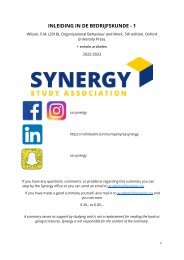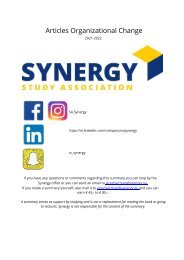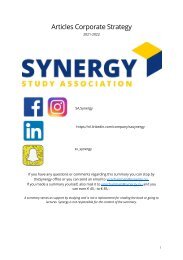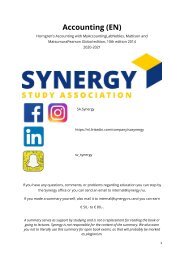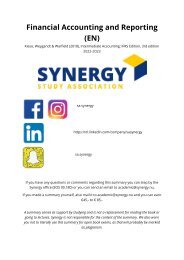Leadership in Organizations
You also want an ePaper? Increase the reach of your titles
YUMPU automatically turns print PDFs into web optimized ePapers that Google loves.
o<br />
Depersonalization and stereotyp<strong>in</strong>g follow with any number of negative<br />
outcomes, such as violence and war.<br />
Criticism of social identity: theory oversimplifies group behaviour<br />
Benefits of social identity theory<br />
• It can help to understand rivalry between groups<br />
• It can help to identify the pressures to conform to a particular way of behav<strong>in</strong>g.<br />
Women can be a positive contribution to an organization by be<strong>in</strong>g different from<br />
exist<strong>in</strong>g paradigms (<strong>in</strong> the past).<br />
Discussion about women as a leader. Some say that leaders should be men, others say<br />
that women are better suited because their values, traits and abilities to <strong>in</strong>spire others<br />
<strong>in</strong> a more susta<strong>in</strong>able, transformational way.<br />
Labyr<strong>in</strong>th of leadership: two barriers for women which create a structure almost<br />
impossible for women to navigate through:<br />
- Women are communal <strong>in</strong> nature. They are seen as compassionate, concerned for<br />
well-be<strong>in</strong>g of others, gentle and k<strong>in</strong>d. Men are ‘agentic’ (assertive, control,<br />
dom<strong>in</strong>ant). And they say that the traits of an agentic person, are the traits a<br />
leader needs.<br />
- Difficult for women, because if they act like a leader needs to act, they are<br />
oppos<strong>in</strong>g what a woman should do (accord<strong>in</strong>g to the theory).<br />
Eagly & Karau (2002): a group will be judged by society by the degree to which a group<br />
matches society’s expectations from them. (Women will not be viewed as leaders<br />
because their communal attributes do not align with the ‘agentic’ requirements of<br />
leadership.<br />
Veccio (2002): claims of mascul<strong>in</strong>e or fem<strong>in</strong><strong>in</strong>e advantage do not have the data to<br />
support them.<br />
Androgyny = both male and female characteristics.<br />
Bolton and Humphreys (1977): men and women both have agentic and communal traits.<br />
Also: research <strong>in</strong> the area of leadership often has been contam<strong>in</strong>ated by a mascul<strong>in</strong>ity<br />
bias <strong>in</strong> which the task leadership function is viewed as more important than the socialemotional<br />
function.<br />
Effective leaders are not specifically men or women, but an <strong>in</strong>dividual who can exhibit<br />
both mascul<strong>in</strong>e and female behaviours <strong>in</strong> different situations.<br />
Diversity and culture<br />
• Different parts of the world view leadership different.<br />
26


